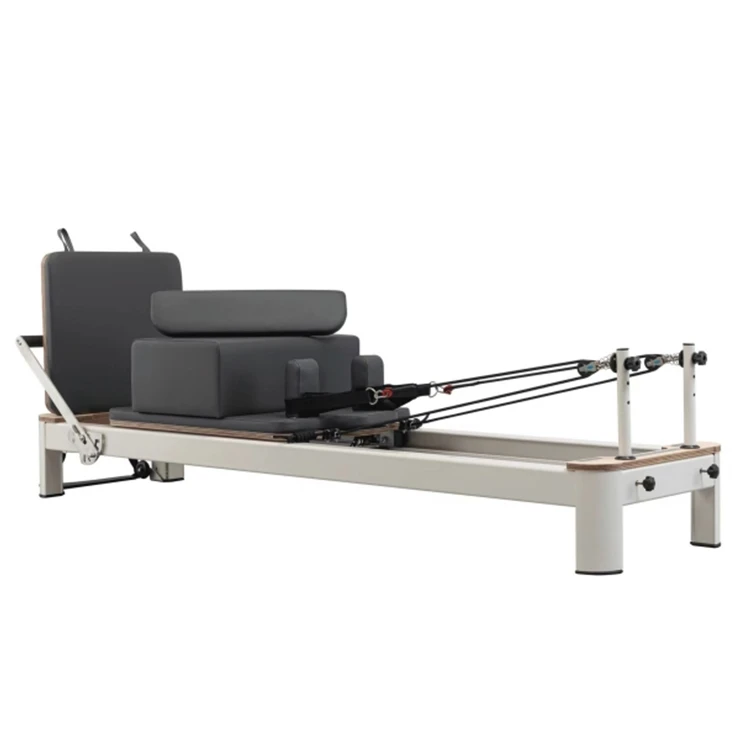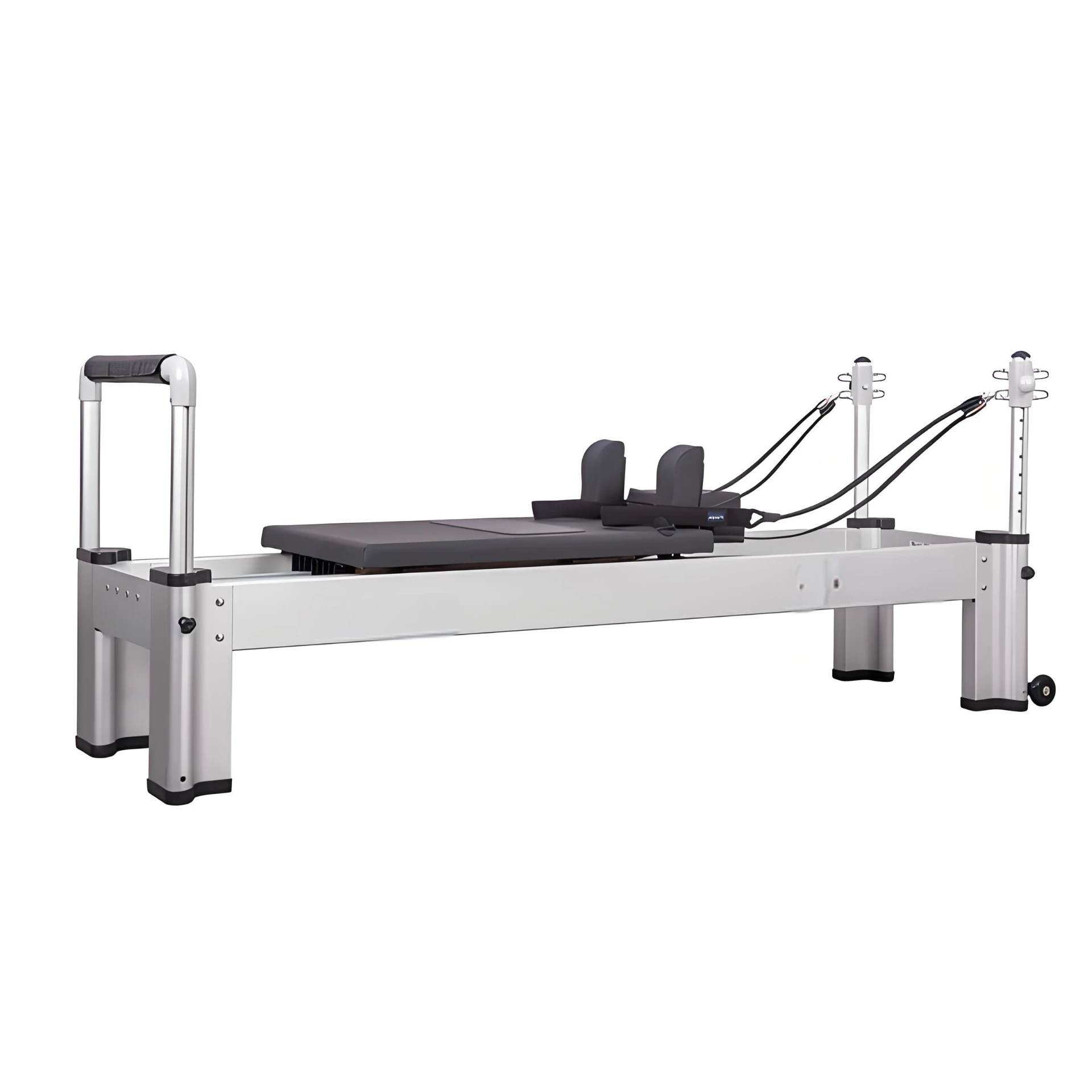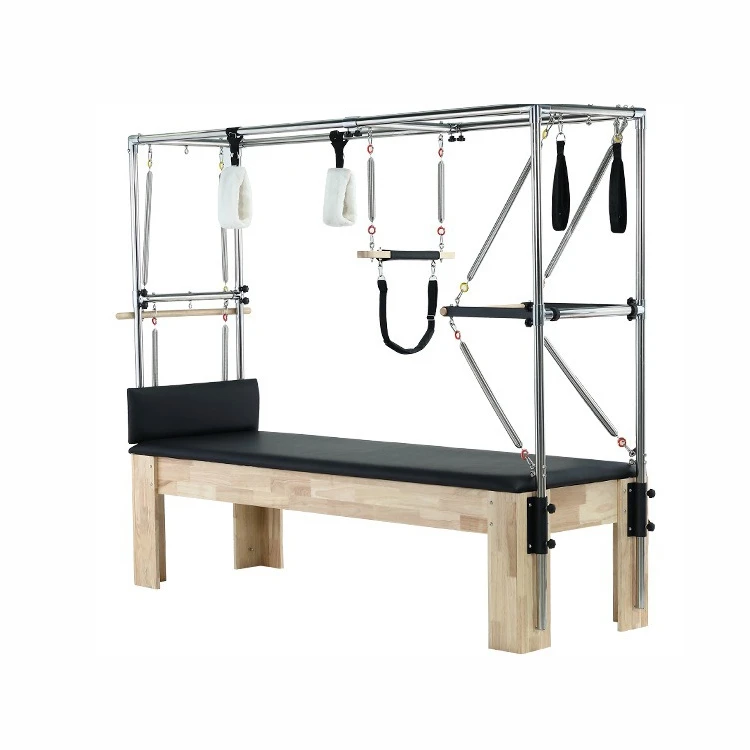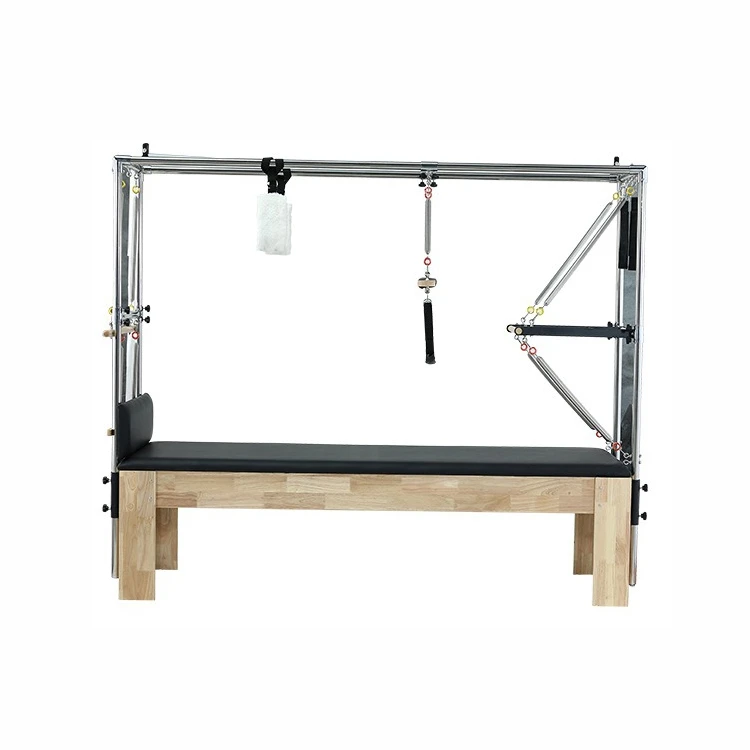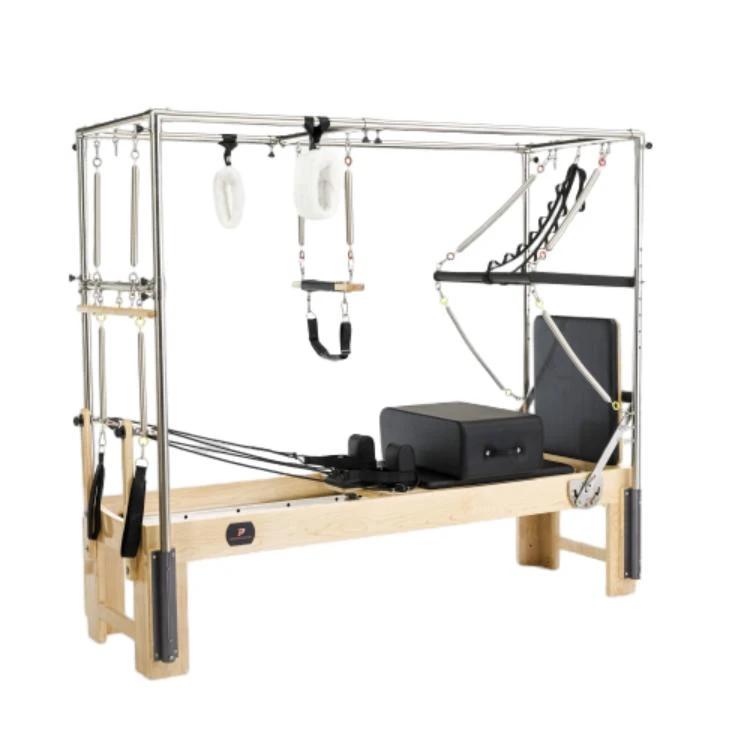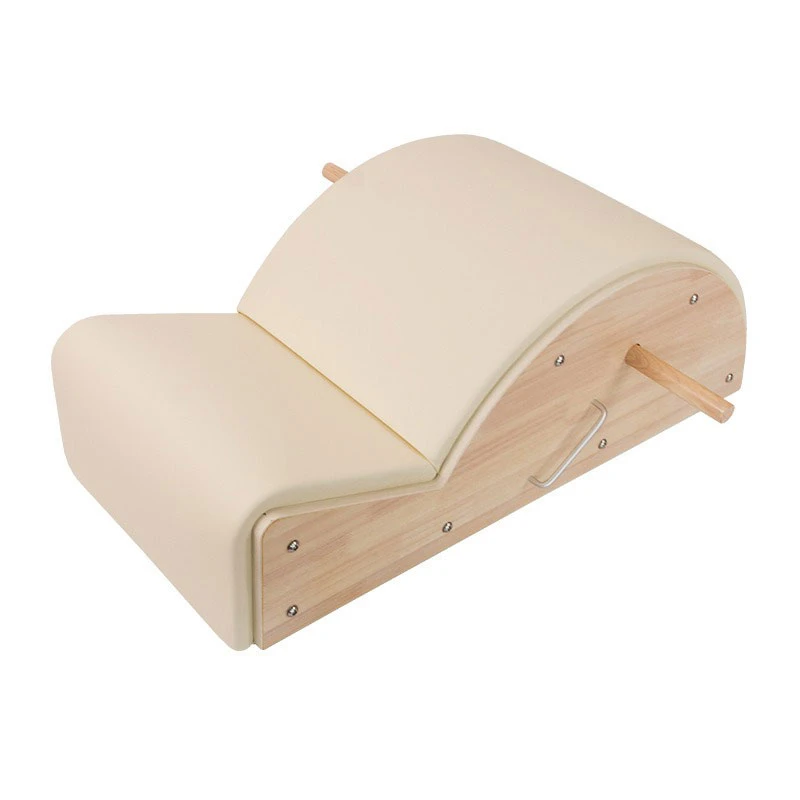OEM Custom Pilates Reformers for Studio Use | Bulk & Private Label
The Evolving Landscape of Professional Pilates Equipment
The global fitness industry is witnessing a significant surge in demand for specialized exercise equipment, with Pilates leading the charge in mindful movement practices. As studios and rehabilitation centers strive to offer unparalleled user experiences and accommodate diverse client needs, the importance of robust, precise, and customizable apparatus cannot be overstated. This comprehensive analysis delves into the critical considerations for sourcing premium quality equipment, focusing specifically on the intricacies of acquiring an OEM Custom Pilates Reformer for Studio Use.
The market for Pilates reformers is characterized by a drive towards innovation, incorporating advanced materials, biomechanically optimized designs, and digital integration. Studios are increasingly looking beyond off-the-shelf solutions, opting for equipment that reflects their brand identity, accommodates specific space constraints, and offers unique functional enhancements. This shift underscores the value proposition of Original Equipment Manufacturer (OEM) solutions, which provide the flexibility and quality assurance required by high-end commercial establishments.
Current industry trends indicate a strong emphasis on sustainability, ergonomic excellence, and modular design. Manufacturers are exploring eco-friendly materials and production processes, alongside designs that reduce the physical strain on both practitioners and instructors. The ability to customize spring resistance, carriage travel, and accessory integration stands as a paramount feature for studios catering to a wide spectrum of clients, from beginner enthusiasts to professional athletes and those undergoing physical rehabilitation.
Core Engineering and Material Excellence in Reformer Manufacturing
The performance and longevity of a Pilates reformer are fundamentally determined by its engineering precision and the quality of its constituent materials. A premium OEM Custom Pilates Reformer for Studio Use is a testament to meticulous design and robust construction. The primary components typically include a durable frame, a smooth-gliding carriage, a precision spring system, adjustable pulleys, and comfortable padding.
Manufacturing Process: From Raw Material to Refined Apparatus
The manufacturing journey of a high-end Pilates reformer involves several sophisticated stages, ensuring both structural integrity and functional excellence. These processes are critical for achieving the precise movement mechanics and durability required for intensive studio use.
- Material Selection and Preparation: The foundation begins with selecting premium-grade materials. For frames, options often include aerospace-grade anodized aluminum (known for its light weight and corrosion resistance), high-quality solid maple or beech wood (selected for strength and aesthetic appeal, often sourced sustainably), or robust stainless steel. Components such as springs utilize high-carbon steel for optimal resistance and fatigue life, while upholstery uses durable, antimicrobial, and easy-to-clean synthetic leathers.
- Precision Machining (CNC): Critical components like the carriage rails, pulley systems, and frame joints are typically manufactured using Computer Numerical Control (CNC) machining. This process ensures unparalleled precision and consistency, with tolerances often measured in micrometers. CNC milling and turning create perfectly symmetrical and smooth surfaces, crucial for the reformer's fluid motion and long-term stability.
- Fabrication and Welding/Joinery: For metal frames, advanced welding techniques (e.g., TIG welding for aluminum or stainless steel) are employed to create strong, seamless joints. For wooden frames, traditional joinery methods like dovetail joints, combined with modern reinforced fasteners, ensure structural integrity and reduce the risk of warping or cracking over time.
- Surface Treatment and Finishing: Metal components undergo anodizing or powder coating for enhanced durability, corrosion resistance, and aesthetic finish. Wooden frames are often meticulously sanded, stained, and sealed with protective lacquers that resist moisture and wear. Upholstery is cut and sewn with industrial-grade precision.
- Assembly: Highly skilled technicians meticulously assemble the various components. This stage involves precise calibration of the spring system, alignment of the carriage, and secure fastening of all parts. Each reformer is assembled to ensure smooth operation, optimal tension, and perfect alignment.
- Quality Control and Testing: Before dispatch, every reformer undergoes rigorous multi-point inspection and testing. This includes load testing for the carriage, spring tension verification, functionality checks for all moving parts, and visual inspections for aesthetic perfection. Adherence to international standards like ISO 9001 for quality management is paramount.
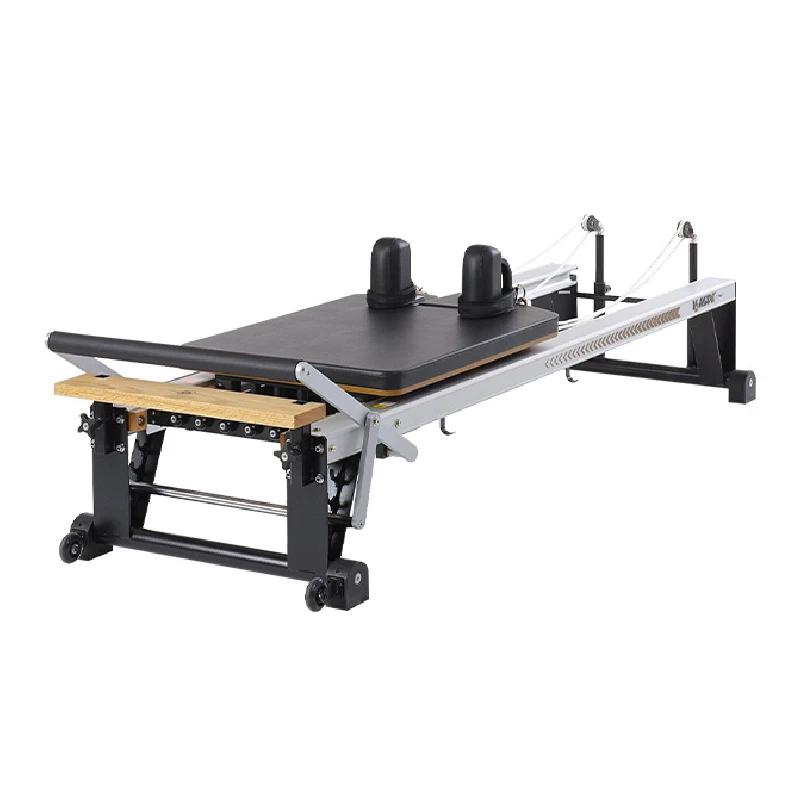
Illustrative Image: Precision engineering for an OEM Custom Pilates Reformer for Studio Use.
The combination of superior materials and advanced manufacturing techniques contributes to a product with an exceptional lifespan, typically exceeding 10-15 years even under heavy commercial studio use. This durability translates into a lower total cost of ownership (TCO) for studios, reducing the frequency of replacement and maintenance.
Performance Metrics and Technical Specifications
Understanding the technical parameters of an OEM Custom Pilates Reformer for Studio Use is crucial for procurement managers and studio owners. These specifications directly impact functionality, user experience, and long-term durability. Below is a detailed table outlining typical and ideal specifications:
| Parameter | Typical Specification Range | Ideal Specification for Studio Use | Impact/Benefit for Users/Studios |
|---|---|---|---|
| Frame Material | Wood (Maple, Beech), Aluminum, Steel | Aerospace-grade Anodized Aluminum / Solid Maple/Beech (sustainably sourced) | Durability, stability, aesthetic appeal, corrosion resistance. Aluminium offers lighter weight, wood offers classic aesthetic and natural dampening. |
| Dimensions (L x W x H) | 230-245 cm x 65-75 cm x 30-45 cm | Approx. 240 cm x 70 cm x 35 cm (customizable) | Accommodates various body types and studio spaces; affects exercise range. |
| Weight Capacity | 120 kg - 150 kg | 150 kg - 180 kg (330-400 lbs) | Ensures safety and accommodates a broader client base. |
| Spring System | 4-5 springs (various tensions) | 5 High-Quality Music Wire Springs (e.g., 1 red (heavy), 2 yellow (medium), 2 blue (light)) | Provides a wide range of resistance levels for diverse exercises and client needs. Quality springs ensure consistent resistance and longevity. |
| Carriage System | 8-wheel system, plastic wheels | 8-wheel (or more) precision bearing system with high-grade polyurethane or nylon wheels | Ensures silent, smooth, and stable carriage glide. Reduces wear and tear, improving user experience. |
| Adjustability | Limited (e.g., 2-position footbar) | Multi-position footbar (4+ positions), adjustable shoulder rests (removable), adjustable rope lengths, gear bar settings. | Accommodates different body heights and exercise variations. Increases versatility and user comfort. |
| Upholstery Material | Standard Vinyl | Medical-grade, antimicrobial, high-density foam with synthetic leather (e.g., PU leather) | Hygiene, comfort, durability, easy to clean. Essential for high-traffic commercial environments. |
| Noise Level | Noticeable friction/spring noise | Minimal to silent operation ( | Enhances the tranquil studio atmosphere, allows for better instruction, and improves user focus. |
| Lifespan (Commercial Use) | 5-8 years | 10-15+ years with proper maintenance | Long-term return on investment, reduced replacement costs, consistent service delivery. |
These specifications are crucial not only for the functional performance of the reformer but also for ensuring a consistent and safe experience for clients across all sessions. High-precision engineering minimizes wear and tear, leading to reduced maintenance requirements and lower operational costs for studios. The ability to customize many of these parameters is a hallmark of an OEM Custom Pilates Reformer for Studio Use, allowing studios to fine-tune equipment to their exact needs.
Applications and Operational Advantages for Pilates Studios
An OEM Custom Pilates Reformer for Studio Use is not merely a piece of exercise equipment; it is a central pillar of a studio's service offering and operational efficiency. Its design and features directly influence client satisfaction, instructor efficacy, and overall business sustainability.
Key Application Scenarios:
- Commercial Pilates Studios: The primary application, supporting group classes, private sessions, and semi-private training. The durability and high adjustability of OEM reformers are critical for accommodating diverse client populations and continuous use.
- Rehabilitation Centers: For physical therapy and injury recovery. Precision and smooth movement are paramount for controlled, therapeutic exercises. Customization allows for specific modifications to support various rehabilitation protocols.
- High-End Gyms and Wellness Centers: As an exclusive offering for members seeking specialized training. The aesthetic appeal and robust build reflect the premium nature of such facilities.
- Boutique Fitness Facilities: Where a unique brand identity and specialized classes are a core offering. Custom branding and bespoke features enhance the studio's unique selling proposition.
- Professional Sports Training Facilities: For athletes focusing on core strength, flexibility, and injury prevention. The precise control and adjustable resistance enable highly targeted training.
Operational Advantages:
- Enhanced Durability and Longevity: Built with commercial-grade materials and construction, these reformers withstand intense daily use, significantly reducing the need for frequent repairs or replacements. This contrasts sharply with consumer-grade equipment that often degrades quickly under professional demands.
- Superior User Experience: Smooth carriage glide, quiet operation, and highly responsive spring systems provide an unparalleled Pilates experience. This contributes directly to client satisfaction and retention.
- Optimized Biomechanics and Safety: Precision engineering ensures proper alignment and movement patterns, minimizing the risk of injury for clients. Features like multi-position footbars and adjustable shoulder rests cater to individual biomechanics.
- Reduced Maintenance Requirements: High-quality components and robust construction mean fewer breakdowns and less need for costly maintenance, translating into lower operational expenses.
- Aesthetic Integration and Brand Consistency: OEM customization allows studios to match equipment aesthetics with their brand design, including frame finishes, upholstery colors, and even logo integration. This creates a cohesive and professional environment.
- Increased Versatility: The broad range of adjustability and optional accessories (e.g., Jumpboards, Sitting Boxes) expands the repertoire of exercises that can be performed, attracting a wider range of clients and allowing for more diverse class offerings.
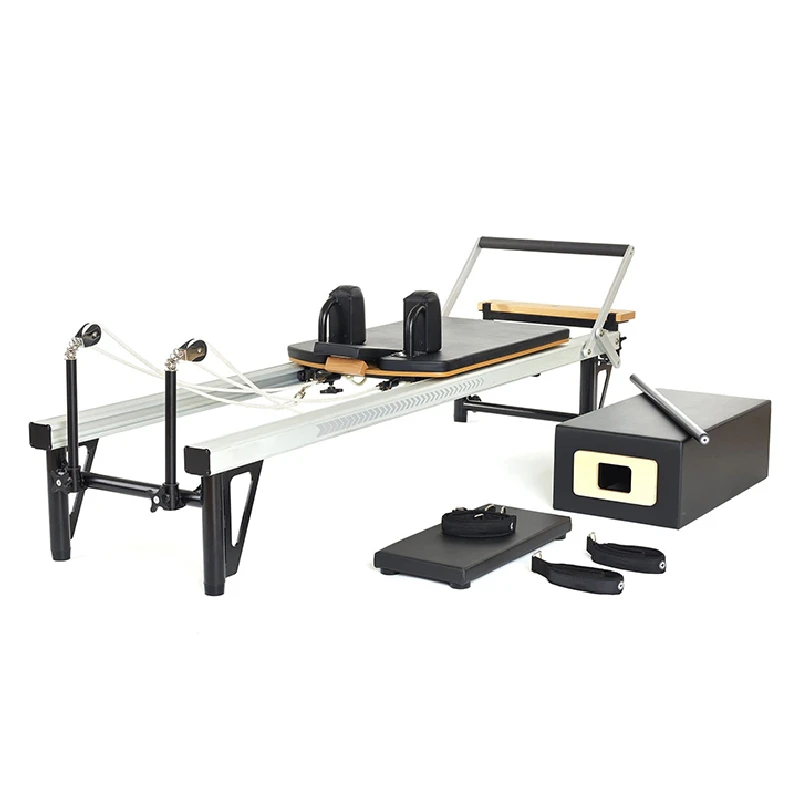
Illustrative Image: Versatility and precision in a modern OEM Custom Pilates Reformer for Studio Use.
These benefits highlight why investing in a specialized OEM Custom Pilates Reformer for Studio Use is a strategic decision for any professional establishment. It moves beyond a simple equipment purchase to a foundational investment in operational excellence and client satisfaction.
Tailored Solutions: The OEM Customization Process
The true value of an OEM Custom Pilates Reformer for Studio Use lies in its ability to be precisely tailored to a studio's unique requirements. This goes beyond mere color choices, encompassing functional modifications, branding integration, and even structural adaptations to optimize space and performance.
Stages of OEM Customization:
- Initial Consultation & Needs Assessment: The process begins with a detailed discussion to understand the studio's specific needs, including target clientele, space dimensions, aesthetic preferences, desired functionalities, budget, and quantity. This stage is crucial for defining the scope of customization for the OEM Custom Pilates Reformer for Studio Use.
- Design & Engineering Proposal: Based on the assessment, the OEM technical team develops preliminary design concepts. This might include CAD drawings, material specifications, and proposals for specific features (e.g., custom frame height, specialized spring configurations, integrated accessories). This stage often involves iteration and feedback from the client.
- Material & Component Selection: Clients can often choose from a range of high-performance materials for the frame (e.g., various wood finishes, aluminum anodization colors), upholstery (color, texture, medical-grade options), and hardware (e.g., chrome, black, stainless steel).
- Prototyping (for large orders or significant modifications): For extensive custom projects, a prototype might be developed for the client to review and approve before full-scale production commences. This ensures all design parameters and functional expectations are met.
- Production & Quality Assurance: Once the design is finalized, manufacturing proceeds with the agreed-upon specifications. Throughout production, stringent quality control checks are performed at every stage, from raw material inspection to final assembly and testing.
- Branding & Finishing: Custom branding, such as engraved logos on wooden frames or specialized decals on metal reformers, is integrated. Final surface treatments and protective coatings are applied to ensure longevity and aesthetic appeal.
- Logistics & Installation Support: The OEM supplier manages the packaging and shipping, often providing options for professional installation services to ensure the equipment is correctly set up and ready for immediate use.
This structured approach ensures that the final product is not just a piece of equipment, but a bespoke solution that perfectly aligns with the studio’s operational and branding objectives. The flexibility offered by OEM customization distinguishes a professional-grade solution from generic offerings on the market, providing studios with a competitive edge.
Unparalleled Quality, Certifications, and Industry Authority
For B2B buyers, particularly in high-traffic commercial environments like Pilates studios, assurances of quality, safety, and reliability are paramount. A reputable manufacturer of an OEM Custom Pilates Reformer for Studio Use will demonstrate its authority and trustworthiness through rigorous certifications, long-standing industry presence, and transparent testing data.
Industry Certifications and Standards:
- ISO 9001: This international standard for quality management systems indicates that the manufacturer consistently provides products and services that meet customer and regulatory requirements. It signifies a commitment to continuous improvement in manufacturing processes.
- CE Marking: For products sold within the European Economic Area, CE marking indicates conformity with health, safety, and environmental protection standards. It is a mandatory declaration by the manufacturer that the product meets the requirements of applicable European directives.
- RoHS Compliance: Restriction of Hazardous Substances compliance ensures that the product (and its components) does not contain hazardous materials beyond specified thresholds, promoting environmental and human safety.
- ASTM Standards: While more common in other industries, specific ASTM (American Society for Testing and Materials) standards might apply to certain materials or structural components, ensuring mechanical integrity.
- SGS Testing: Independent third-party testing and certification by organizations like SGS provide unbiased verification of product quality, durability, and safety features. This often includes load testing, fatigue testing, and material analysis.
Commitment to Quality and Experience:
A manufacturer's authority is also demonstrated through their years of operation in the fitness equipment sector. Established companies often possess deep institutional knowledge, refined manufacturing processes, and a proven track record of innovation. Collaboration with leading Pilates educators and studio designers further solidifies their expertise and helps in the development of equipment that meets evolving industry demands.
For instance, data from internal fatigue testing, showing a carriage sustaining over 100,000 cycles of full travel under maximum load without significant wear, provides tangible proof of an OEM Custom Pilates Reformer for Studio Use's long-term reliability. Such data, combined with transparent material sourcing and adherence to international safety guidelines, builds profound trust with professional buyers.
Case Studies and Client Success
Real-world application provides the strongest evidence of a product's efficacy and a manufacturer's reliability. The experiences of existing clients offer invaluable insight into the practical benefits of investing in an OEM Custom Pilates Reformer for Studio Use.
Case Study 1: "The Core Sanctuary" - Boutique Pilates Studio Expansion
"The Core Sanctuary," a rapidly expanding boutique Pilates studio chain, faced challenges with maintaining equipment consistency and brand aesthetic across multiple locations. Their existing reformers, sourced from various suppliers, exhibited inconsistencies in spring resistance and carriage smoothness, leading to varied client experiences.
- Challenge: Inconsistent equipment quality, difficulty in branding, and high maintenance costs.
- Solution: Partnered with an OEM manufacturer for 15 custom reformers, designed with specific frame dimensions to fit new studio layouts, custom upholstery colors matching their brand palette, and personalized logo engraving.
- Outcome: Achieved uniform high-quality performance across all studios, significantly reduced equipment-related complaints, and enhanced brand cohesion. Maintenance costs dropped by 30% due to the robust build quality. Client retention rates improved, attributed partly to the premium exercise experience.
Case Study 2: "Revive Rehab Center" - Specialized Rehabilitation Equipment
"Revive Rehab Center," a leading physical therapy clinic, sought reformers specifically adapted for post-operative recovery and neurological rehabilitation. Standard reformers often lacked the necessary stability and subtle resistance variations required for sensitive therapeutic exercises.
- Challenge: Need for reformers with ultra-smooth, controlled movement and highly granular resistance adjustments for patient safety and precise therapeutic outcomes.
- Solution: Commissioned 5 custom reformers with specialized, lighter-tension spring configurations, extended carriage travel with enhanced damping, and integrated stability handles. The frame height was also adjusted for easier patient access.
- Outcome: Therapists reported greater ease in guiding patients through exercises, with patients experiencing safer and more effective rehabilitation sessions. The tailored equipment significantly enhanced the center's capacity to offer advanced therapeutic Pilates.
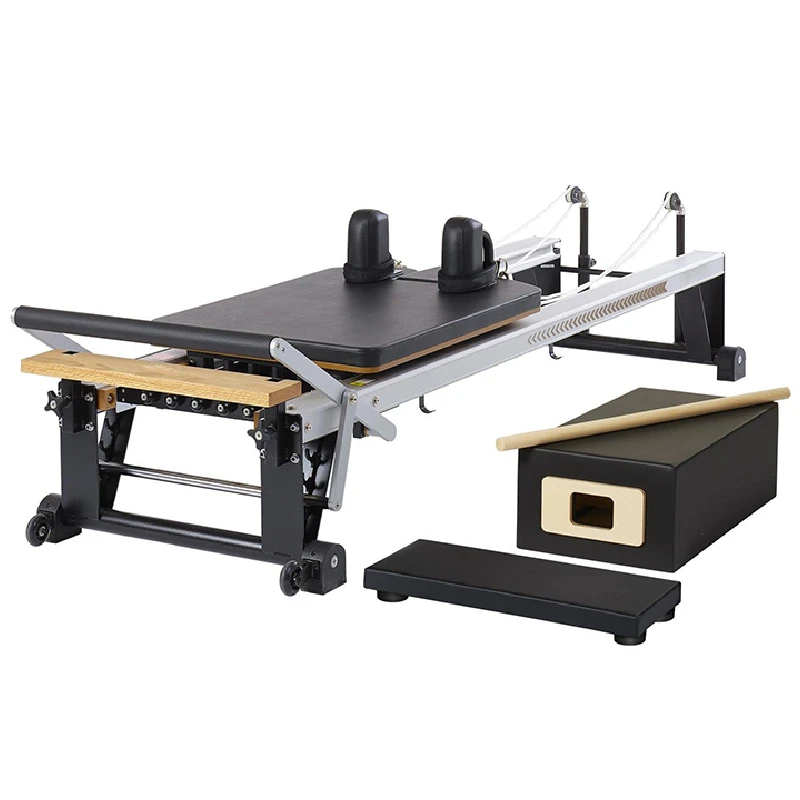
Illustrative Image: An OEM Custom Pilates Reformer for Studio Use in an active studio environment.
These examples underscore the tangible benefits of choosing an OEM partner for specialized equipment. From improving operational efficiency to enhancing client outcomes, the strategic investment in a tailor-made OEM Custom Pilates Reformer for Studio Use yields significant returns.
Strategic Partnership and After-Sales Support
Beyond the initial purchase, the long-term success of an investment in an OEM Custom Pilates Reformer for Studio Use hinges on the strength of the partnership with the manufacturer. Robust after-sales support, clear warranty provisions, and efficient delivery logistics are critical components of this relationship.
Delivery and Lead Times:
For custom OEM orders, delivery timelines typically range from 8 to 14 weeks, depending on the complexity of customization, order volume, and current production schedules. This includes time for design finalization, material procurement, manufacturing, quality control, and shipping. Transparent communication regarding lead times, particularly during the initial quotation phase, is a hallmark of a reliable OEM partner. Expedited options may be available for urgent requirements, though these may incur additional costs.
Warranty and Quality Assurance:
A comprehensive warranty is essential for B2B buyers. For an OEM Custom Pilates Reformer for Studio Use, a standard warranty typically includes:
- Structural Frame: 10-year to lifetime limited warranty, covering manufacturing defects in the frame.
- Moving Parts (Carriage, Wheels, Springs): 2-5 year warranty, covering defects in materials and workmanship. Springs, being consumable, often have a shorter but still substantial warranty period due to their high-grade material.
- Upholstery and Wearable Components: 1-2 year warranty, covering premature wear or defects not caused by misuse.
Beyond the initial warranty, reputable OEMs often offer extended warranty options or maintenance contracts. These provide peace of mind and ensure the longevity of the investment, highlighting the manufacturer's confidence in their product's durability and design.
Customer Support and Technical Assistance:
Dedicated customer support is critical for commercial equipment. This includes access to technical experts for troubleshooting, availability of spare parts, and guidance on routine maintenance. A strong OEM partner provides:
- Responsive technical support via phone, email, or dedicated online portals.
- A comprehensive spare parts inventory and easy ordering process.
- Detailed maintenance guides and recommended service schedules.
- Potential for on-site service or authorized service partners in key regions.
Choosing an OEM partner with a strong commitment to post-sales support ensures that your investment in an OEM Custom Pilates Reformer for Studio Use remains operational and performs optimally for its entire lifespan, maximizing your return on investment.
Frequently Asked Questions (FAQ)
Q1: What defines an OEM Custom Pilates Reformer for Studio Use compared to a standard model?
An OEM Custom Pilates Reformer for Studio Use is manufactured by an Original Equipment Manufacturer to specific client specifications. This includes customization of dimensions, materials (frame, upholstery), spring resistance levels, integrated accessories, and branding elements. Standard models, while functional, offer limited or no personalization, leading to a less optimized fit for a studio's unique needs or brand identity.
Q2: What is the typical lead time for a custom OEM reformer order?
Lead times for an OEM Custom Pilates Reformer for Studio Use typically range from 8 to 14 weeks from the confirmation of the order and design specifications. This period accounts for custom material sourcing, specialized manufacturing processes, rigorous quality control, and international shipping logistics. Urgent requests may be accommodated through expedited services, subject to additional charges.
Q3: How durable are OEM Custom Pilates Reformers for heavy commercial use?
Designed for high-traffic commercial environments, these reformers are built with aerospace-grade aluminum, solid hardwoods, and high-carbon steel springs. They undergo extensive load and fatigue testing, often demonstrating a lifespan of 10-15 years or more with proper maintenance. This significantly surpasses the durability of standard, non-commercial grade equipment, providing a superior return on investment.
Q4: Are there specific maintenance requirements for an OEM Custom Pilates Reformer for Studio Use?
While highly durable, regular maintenance is recommended to ensure optimal performance and longevity. This typically includes daily cleaning of upholstery and frame, monthly inspection of springs and moving parts (wheels, bearings), and periodic lubrication as per manufacturer guidelines. Your OEM partner will provide detailed maintenance protocols and readily available spare parts.
Q5: Can I request specific safety features or certifications for my custom reformer?
Yes, as part of the OEM customization process, you can discuss specific safety enhancements. Reputable manufacturers will adhere to international safety standards like CE and often conduct independent SGS testing. Any specific certifications or testing requirements relevant to your region or application can be integrated into the project scope during the initial consultation phase.
Conclusion
The decision to invest in an OEM Custom Pilates Reformer for Studio Use represents a strategic commitment to quality, client experience, and operational efficiency. By leveraging the expertise of a specialized manufacturer, studios can acquire equipment that not only meets the rigorous demands of commercial use but also perfectly aligns with their unique brand identity and functional requirements. The detailed manufacturing processes, superior material selection, comprehensive technical specifications, and robust after-sales support collectively ensure a long-term, high-performance asset. This approach moves beyond simple procurement, fostering a partnership that underpins the success and growth of any professional Pilates establishment.
References
- International Organization for Standardization (ISO). ISO 9001:2015 Quality management systems – Requirements. (Referenced for quality management standards in manufacturing.)
- European Commission. CE Marking. (Referenced for product safety and regulatory compliance in the EU market.)
- Pilates Method Alliance (PMA). Industry Standards and Guidelines for Pilates Equipment. (Referenced for best practices and considerations in Pilates apparatus design and use.)
- SGS SA. Product Testing, Inspection and Certification Services. (Referenced for third-party quality assurance and independent verification.)
- American Society for Testing and Materials (ASTM International). Standards for Materials and Manufacturing. (Referenced generally for material quality and structural integrity testing principles.)
- Sports & Fitness Industry Association (SFIA). Annual Reports on Fitness Equipment Trends. (Referenced for general market trends in fitness equipment and specialized apparatus demand.)
- Biomechanics Journal. Studies on Ergonomics and Efficiency of Exercise Equipment. (Referenced for principles guiding ergonomic design and biomechanical optimization in fitness apparatus.)
Latest news
-
Why Every Pilates Studio Needs a Ladder BarrelNewsAug.19,2025
-
Why Every Home Gym Needs a Pilates ChairNewsAug.19,2025
-
Understanding the Different Types Of ReformersNewsAug.19,2025
-
The Complete Buyer's Guide to Pilates Spine Corrector Barrels for StudiosNewsAug.19,2025
-
The Carlo Pilates Method: Blending Chiropractic Principles with MovementNewsAug.19,2025
-
How to Use a Pilates Cadillac for Full-Body WorkoutsNewsAug.19,2025
- Address
- Room 1601, 1302, Building A, Zijingguandi, Qiaodong District, Xingtai City, Hebei Province, China
- Sandra@raetin.com
- Phone
- +86 18231139331

